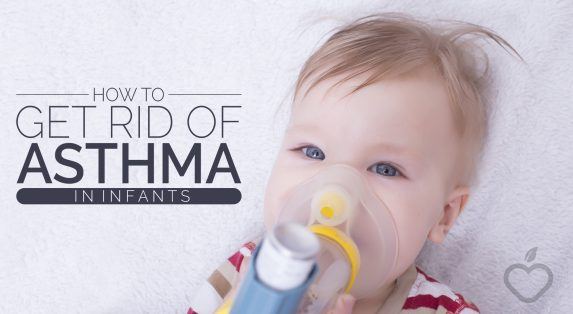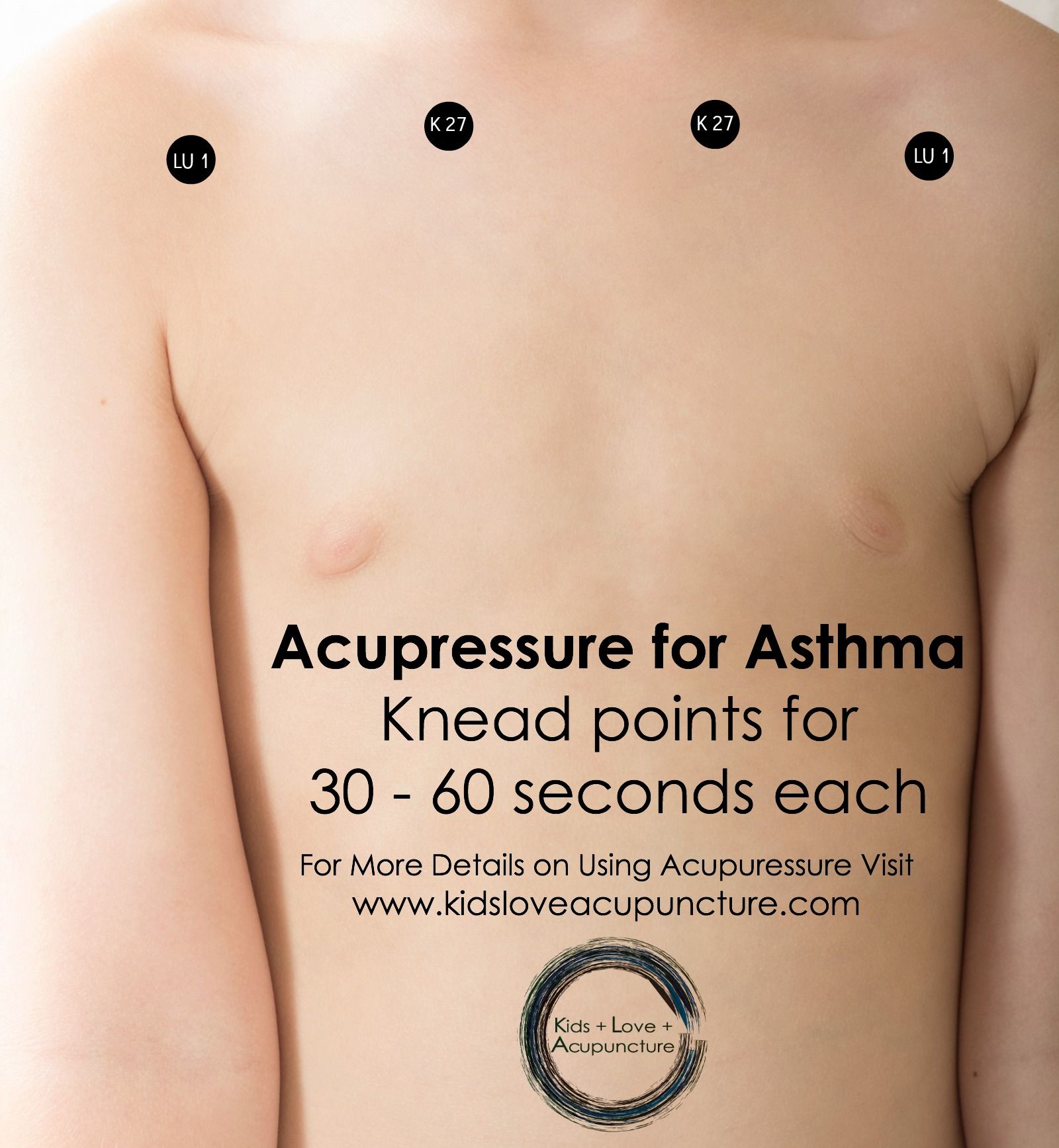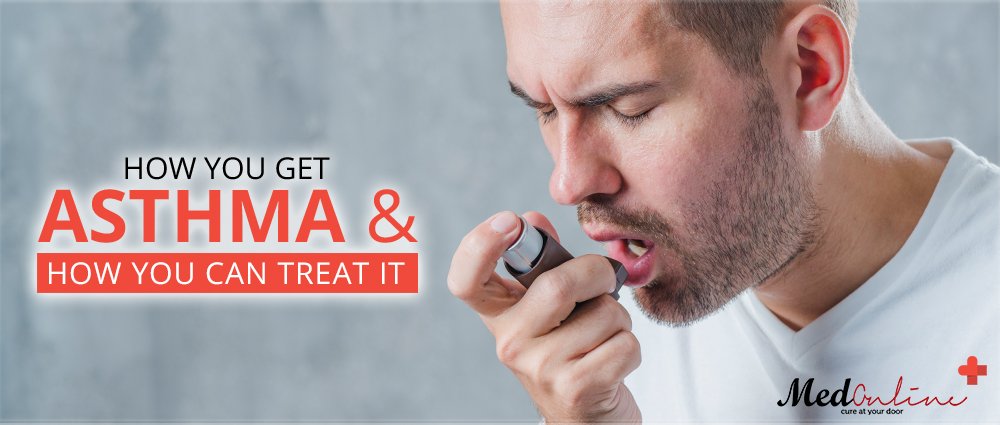Childhood Asthma Vs Asthma In Adults
The symptoms of asthma are the same for children and adults. The symptoms for children, though, are generally more intermittent and may lessen or go away during puberty.
Adult-onset asthma is often more severe. The symptoms are more persistent. Adults are more likely to have frequent asthma attacks, and it does not go away with time. Adults may require daily medications to control their asthma.
What Kind Of Physician Treats Adult Onset Asthma
Many older patients are treated for asthma by their internist or family physician; however, if your asthma symptoms are not under control within three to six months, or if you have severe persistent asthma, or if you are having asthma episodes that need emergency treatment, it may be time to see an asthma specialist. Allergists/Immunologists or pulmonologists are specialists who treat asthma. Those who have completed training in those specialties are usually called board-certified or board-eligible.
Definitions Used In Epidemiology
The demarcation between childhood-onset and adult-onset asthma is somewhat arbitrary, but adult-onset has been defined as from as young as 16 years. The combination of airway hyperresponsiveness and current asthma symptoms is a reliable indicator of clinically important asthma across age groups. However, the presence of wheeze alone within the last 12 months has been used by many large epidemiological studies to determine current asthma prevalence regardless of the age of onset.
Post-bronchodilator airflow obstruction is fundamental to the definition of COPD. A clinical diagnosis of COPD also relies on the presence of coexistent symptoms and risk factors. However, epidemiological studies have mainly adopted only the spirometric criterion.,,
You May Like: Can You Get Asthma From Smoking Weed
People Who Develop Asthma Later In Life Are Also Less Likely To Experience Remission
The age of asthma onset may also be a factor. One old, large 1999 study found that middle-aged and elderly adults who developed asthma later in life were less likely to experience remission.
Researchers in the study above determined that of 6,610 people, only 6 percent reportedly entered remission within 10 years.
Spacers For Asthma Medication

It is recommended that all people with asthma, regardless of age, use a spacer when taking medication via a metered-dose inhaler .
Spacers help to improve the delivery of asthma medication to the lungs and minimise side effects from medications. Talk to your doctor or pharmacist about spacers and how they might help you manage your asthma.
;which demonstrate how to use a puffer and spacer.
Don’t Miss: Can Allergies Cause Asthma Like Symptoms
What Is Asthma Anyway
First up, a little anatomy refresher: Your airways, which extend between your nose and mouth and your lungs, have the very important job of carrying air in and out of your body, according to the National Heart, Lung, and Blood Institute . When you have asthma, triggers like animal fur, pollen, mold, cold air, cigarette smoke, exercise, and respiratory infections like colds cause your airways to get inflamed, according to the NHLBI. That inflammation can cause swelling, which in turn can prompt the muscles around your airways to tighten, making it hard to get air in and out. At the same time, your airways might also expel more mucus than they usually do, making it even harder to breathe.
Experts dont know exactly what causes some people to get asthma when others dont, but its pretty safe to assume that its probably a combination of environmental factors and genetic factors. For example, if someone in your immediate family has asthma, youre more likely to have it too, according to the Centers for Disease Control and Prevention . Beyond that, the general cause is a stronger-than-normal response from your immune system to certain triggers, which is why you get all that inflammation when people without asthma dont, says the NHLBI.
Asthma Symptoms In Adults
Shortness of breath that occurs when you are performing a simple exercise such as walking to the mailbox or climbing the stairs: If its an everyday occurrence, the symptom is known as dyspnea on exertion. It shouldnt be confused with shortness of breath following an illness or strenuous exercise.
A persistent cough from asthma is a dry cough that occurs in response to asthma triggers such as a cold, allergies or smoke. The cough is more likely to happen at night. Chest tightness and cold symptoms that hang in the chest for an extended period of time are also sometimes symptoms of asthma.
Wheezing or a whistling sound when you exhale is another asthma symptom. Having difficulty breathing is a common complaint from many asthma patients.
Factors that affect adult-onset asthma include:
- Exposure to environmental elements either at work or home that cause allergy-like symptoms
- Medical history of allergies
- Living now or in the past in a smoking household
- Family history of asthma
Read Also: How To Stop Wheezing Without Inhaler
If Your Asthma Symptoms Are Caused By Allergies Take Steps To Control Knownor Potential Triggers In Your Environment
Allergy-proof your house for dust, mold, cockroaches, and other common indoor allergens to which you are allergic.
;Reduce your outdoor activities when the pollen count or ozone level is high.
;Choose foods that dont contribute to your asthma or allergy symptoms.
;Evaluate your workplace for possible allergens and take the necessary steps to reduce your exposure to them.
In order to determine relevant triggers, you may want to seek consultation with an allergist who can further define these triggers.
In addition, anyone with asthma should consider getting an annual flu shot. Older adults also should talk with their internist about getting a pneumonia vaccination.
Managing Asthma In Adults: Minimize The Impact Of Adult
Asthma in adults is a fairly common issue. According to the National Heart Lung and Blood Institute more than 17 million adults in the United States have asthma. Many people think of asthma as an issue that begins in childhood so it can be disheartening if you begin experiencing symptoms and are diagnosed with asthma in adulthood. Armed with knowledge medication and your doctor’s advice you can minimize the impact asthma has on your busy life.
Learn about adult onset asthma symptoms
Adult onset asthma is asthma that begins after adolescence. According to the University of Maryland Medical Center women are more likely than men to develop asthma as adults and sometimes experience asthma symptoms for the first time during pregnancy. Much like asthma that begins in childhood adult asthma symptoms include wheezing coughing and tightness in the chest.
If you think you might have asthma see your doctor. If you experience severe difficulty breathing call 911.
Develop a treatment plan for managing asthma with your doctor
Make environmental and lifestyle changes to minimize triggers
It’s important to stay active and exercise regularly even after an asthma diagnosis. According to the Mayo Clinic treatment will help control symptoms during physical activity and regular exercise can strengthen your lungs to improve symptoms.
Stay in touch with your doctor
You May Like: Does Smoking Weed Make Asthma Worse
What Causes Adults To Develop Asthma
At least 30% of adult asthma cases are triggered by allergies. People who are allergic to cats may have an increased risk for developing adult onset asthma. Exposure to allergens or irritants such as cigarette smoke, chemicals, mold, dust, or other substances commonly found in the persons environment might trigger the first asthma symptoms in an adult.
Prolonged exposure to certain workplace materials may set off asthma symptoms in adults.
Hormonal fluctuations in women may play a role in adult onset asthma. Some women first develop asthma symptoms during or after a pregnancy. Women going through menopause can develop asthma symptoms for the first time.
Different illnesses, viruses, or infections can be a factor in adult onset asthma. A bad cold or a bout with the flu is often a factor in adult onset asthma.
Smoking does not cause adult onset asthma; however, if you smoke or if you are exposed to cigarette smoke , it may provoke asthma symptoms.
Signs You Actually Have Severe Asthma
Breathing is just one of those things you take for granted until it feels like every inhale or exhale is a struggle. Unfortunately, people with severe asthma have to deal with breathing issues way more often than anyone should, and it can be completely terrifying.
Asthma is a respiratory condition that affects the airways that extend from your nose and mouth to your lungs, according to the National Heart, Lung, and Blood Institute . When youre exposed to triggers like animal fur, pollen, mold, exercise, and respiratory infections, these airways can narrow, restricting your airflow. This can then make the muscles surrounding your airways constrict, making it even harder to breathe, and cause your airways to produce more mucus than normal, further compounding the problem. All together, this can lead to asthma symptoms like shortness of breath, coughing, wheezing , and chest tightness or pain, according to the NHLBI.
Like most health conditions, asthma severity runs along a spectrum, Emily Pennington, M.D., a pulmonologist at the Cleveland Clinic, tells SELF. Some people have cases where they experience minor symptoms here and there . Others can have asthma that is basically an ever-present problem and might result in scary asthma attacks, which is when symptoms ramp up in severity and can even become life-threatening.
Related:
You May Like: What Does A Nebulizer Do
Breathing Problems During Exercise
If you have chest tightness, cough, wheeze or shortness of breath during exercise, your doctor may perform extra tests to see if you have a type of asthma called, exercise-induced asthma or exercise-induced bronchospasm. For some people, they will only have asthma symptoms during exercise. There are many benefits to exercise, so work with your doctor to find the best management steps and treatment options for you.
Recommended Reading: Does Allergy Cause Asthma
Can You Get Asthma As An Adult

Asthma is a lung condition which causes breathing difficulties, and often affects children.
According to the NHS, it can affect people of all ages.
Their website says: It affects people of all ages and often starts in childhood, although it can also develop for the first time in adults.
Asthma UK states other causal factors are if you have a family history of asthma, allergies or eczema, a low birth weight, your mother smoked while pregnant, your parents smoke or you were around smoke as a child, or if you suffered from bronchiolitis as a child.
Recommended Reading: How To Help Someone Having An Asthma Attack Without An Inhaler
What Causes An Asthma Attack
An asthma attack can happen when you are exposed to asthma triggers. Your asthma triggers can be very different from someone elses asthma triggers. Know your triggers and learn how to avoid them. Watch out for an attack when you cant avoid your triggers. Some of the most common triggers are tobacco smoke, dust mites, outdoor air pollution, cockroach allergen, pets, mold, smoke from burning wood or grass, and infections like flu.
Is It Triggered By Allergies
There are numerous ‘triggers’ for asthma, and people will often soon work out what their individual trigger is.
The NHS says common triggers include;
- Allergies to house dust mites, animal fur or pollen
- Smoke, pollution and cold air
- Exercise
- Infections like colds or flu
But in adults, asthma triggers are less likely to be allergies, such as pets, pollen, house or dust mites, and more likely brought on by hormonal changes or work-related.
Don’t Miss: How Do You Control Asthma Without An Inhaler
Is There Any Way Of Altering The Course Of Asthma In Young Children
âItâs not really the case that intervention changes the course of asthma. But medicines have gotten so safe that we can pretty much neutralize symptoms indefinitely in the majority of people with asthma,â Johnson says. Uncontrolled asthma leads to emergency room visits, absenteeism from school, and missed opportunities for social and athletic interchange, he says.
Rachelefsky adds, âThe goal of asthma treatment is control of the disease to allow someone to have a normal life, knowing that it may not prevent the natural history of the disease. People should concentrate on the right diagnosis and treatment.â
Will Asthma Symptoms Return After Remission
One characteristic of asthma is inflammation, which changes the way your lungs function. Even if your asthma improves, its important to remain vigilant againstyour triggers.
According to the American Academy of Allergy, Asthma & Immunology, colds and allergies are the most common triggers especially in children.
Its possible to experience improved asthma for a long period of time, and then for your symptoms to return during allergy season or if you get sick.
Other possible asthma triggers are:
- cigarette smoke
Theres also a greater chance that your symptoms will return if you have:
- a personal or family history of asthma
- allergies
- eczema
Smoking or living with someone who does can also increase your risk of developing returning asthma symptoms.
You may not be able to entirely prevent your asthma symptoms from returning, but managing and treating your condition can help reduce their recurrence. Avoiding your triggers is one way you can help prevent asthma flare-ups.
Recommended Reading: Help Asthma Without Inhaler
How Does Adult Onset Asthma Compare With Childhood Asthma
Unlike children who often experience intermittent asthma symptoms in response to allergy triggers or respiratory infections, adults with newly diagnosed asthma generally have persistent symptoms. Daily medications may be required to keep asthma under control. After middle age, most adults experience a decrease in their lung capacity. These changes in lung function may lead some physicians to overlook asthma as a possible diagnosis. Untreated asthma can contribute to even greater loss of lung function!
Asthma Peak Week: How To Exercise Safely With Asthma
The third week of September is known as Asthma Peak Week, the week with the highest numbers of asthma attacks and hospitalizations every year. Allergen levels are at their highest this week, particularly common allergens like ragweed pollen, dust, and mold, and this can make any activity difficult. You might be reluctant to work out, but regular exercise can improve asthma symptoms by increasing lung capacity and reducing inflammation. A well-considered exercise plan guided by a medical professional is vital to ensuring you can exercise safely with asthma, so read on to learn what to discuss with your doctor about creating an exercise plan for you!
You May Like: Chihuahua Asthma Symptoms
Adult Vs Childhood Asthma
Its common for children to have asthma symptoms that come and go, for example triggered by allergy or a respiratory infection. Adult-onset asthma tends to have persistent symptoms that are often not associated with allergic triggers.
About one in ten adults with asthma have uncontrolled symptoms and exacerbations despite treatment. Such difficult-to-treat asthma can reduce quality of life and also lead to more deaths than we see with childhood asthma. We dont know why adult asthma doesnt respond as well to treatment as childhood asthma. It may be because adult lungs can be stiff and function less well than a childs lungs. Also the bodys immune response may change as we get older.
Its reassuring to remember that death from asthma in adulthood is still uncommon.
Adults also tend to have other illnesses that are affected by asthma and allergy medications. For example oral steroids can worsen the symptoms of glaucoma, cataracts and osteoporosis.
You Developed It For The First Time In Adulthood

Sometimes adults who have never had any symptoms before will develop asthma, and it can happen in your 40s, 50s, 60s or any age.
Known as adult-onset asthma, it may have no known cause, but most of the time the new asthma is triggered by an environmental irritant , a viral infection , or an allergy.
Women are more likely to develop asthma in adulthood, and there are certain things, like obesity, smoking, and stressful life events that are known risk factors for adult-onset asthma.
Don’t Miss: Ibuprofen And Asthmatics
Why Should I Worry About Pneumonia
People with asthma have a higher risk of developing pneumonia due to previous lung damage or weakness of the lung tissue caused by asthma. In fact, pneumonia is a leading cause of hospitalization in children and adults. How your body responds to pneumonia depends on which type of infection you have, your age and overall health. While anyone can get pneumonia, people living with asthma are more likely to develop pneumonia after getting sick with the flu than people without asthma. Adults 65 or older living with asthma have a 5.9 times greater risk than their healthy counterparts of contracting pneumococcal pneumonia. This is because as you get older, your bodys immune system naturally weakens making it harder for our bodies to fight off infections. It can also take you longer to recover and you are more likely to develop serious complications. Assess and understand your risk for getting pneumococcal pneumonia by taking our quick risk assessment.
A Noticeable Change In Lung Function
Is it becoming harder to catch your breath after your run? Are you having coughing attacks? Are you exhausted more often than you used to be?
A decrease in lung function is one of the hallmark signs used to diagnose asthma and doctors test lung function to see if treatment is working over time.
Children tend to experience symptoms that flare up or get worse after exposure to an allergen or during a viral infection. Adults, on the other hand, may be more likely to experience persistent symptoms that require daily medication to control.
For children, asthma may feel “normal” because that’s all they know. Adults, however, can remember how they used to feel “before” and have benchmarks they can use to compare their lung fitness over time.
Also Check: Can You Have Asthma In The Army
